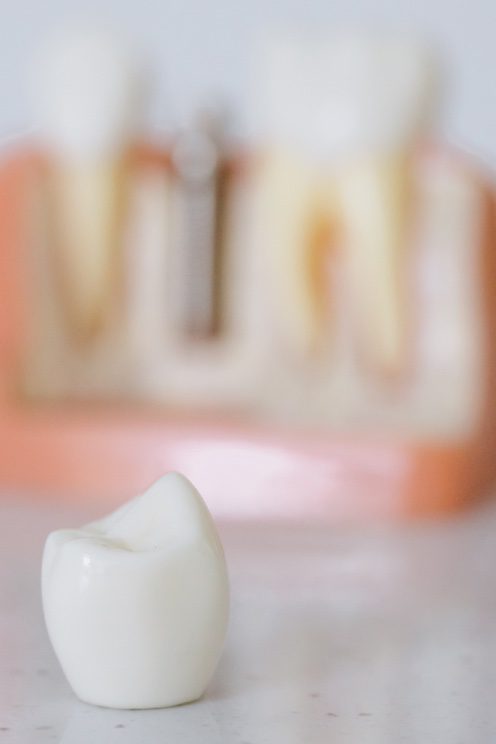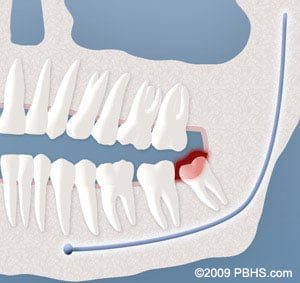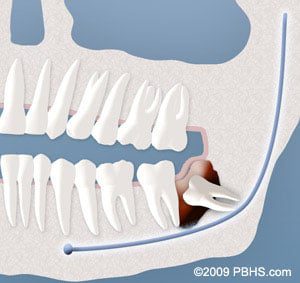Wisdom Teeth Removal
Getting wisdom teeth removed has become a rite of passage for many adolescents and young adults. However, many simply go through with the procedure without knowing why they need to do so or the benefits of such tooth extractions.
There are also people who choose not to undergo wisdom teeth removal. Oftentimes though, people feel the consequences of this decision later in life — suffering from impacted teeth and experiencing extreme pain, infections, and extensive dental damage.
Understanding what wisdom teeth are and why they may need to be removed can help ensure you maintain good oral health and a beautiful smile.
At Green Valley Oral Surgery, our expert oral surgeons not only routinely perform wisdom teeth removals but also educate patients from Vallejo, Santa Rosa, Suisun, and other areas in Green Valley about the procedure.

What Are Wisdom Teeth?
Wisdom teeth is the colloquial term for the third set of molars located at the very back of your mouth. These four teeth, one each at the top and bottom corners of the mouth, are the last adult or permanent teeth to appear. Wisdom teeth got their name from the fact that they come through at a mature age when people would already have gained wisdom from their experiences.
Properly erupted wisdom teeth can help you chew food better. However, in most cases, people get their wisdom teeth removed between the ages of 17 and 25 — right when they start to appear.
Most people in the U.S. get all their wisdom teeth removed. Between 5% and 37% of people choose to get only some of their wisdom teeth extracted.
Why Do Wisdom Teeth Need to Be Removed?
People generally opt for wisdom teeth removal due to teeth and gum problems these molars often cause. Although wisdom teeth may erupt normally and not cause any issues, this is not always the case.
Since wisdom teeth erupt after all other teeth have already come through, they often become impacted. Impacted wisdom teeth can cause a myriad of teeth and gum complications. The limited space or room to grow can cause the wisdom teeth to emerge at the wrong angle or only come through partially. This can cause crowding, causing the neighboring teeth to move or become displaced.
The wisdom teeth may also grow into the adjacent tooth and break or damage it. In some cases, the wisdom teeth never erupt and continue to grow as if lying down beneath the gums or within the jawbone.
Moreover, it is possible for wisdom teeth that properly come through to still cause issues. This is largely because the position of the teeth makes it hard for you to clean them properly. As such, wisdom teeth become prone to plaque, dental caries or tooth decay, and gum disease.
As such, many dentists generally recommend having wisdom teeth removed to prevent such problems in the future.
Signs You Need Wisdom Teeth Removal
If you choose to wait for your wisdom teeth to appear instead of having them removed preemptively, we recommend going for regular dental checkups to follow the progress of your teeth’s development.

Keep an eye out for the following symptoms of impacted wisdom teeth, as well:
- Jaw pain
- Visible swelling around the jaw
- Swollen or inflamed gums
- Tender or bleeding gums
- Halitosis or bad breath
- Constant unpleasant taste in your mouth
- Trouble opening and closing mouth
Other signs you may require a wisdom tooth extraction are problems, such as:
- Periodontal or gum disease
- Tooth decay in the teeth beside your wisdom tooth
- Fluid-filled sacs or cysts within the jawbone
- Tumors in the gums
- Repeated tooth and gum infections


Preparing for a Wisdom Teeth Extraction
Prior to your wisdom teeth removal appointment, you will first undergo dental consultations to check how your third molars are growing. You may be required to undergo dental X-rays, as well. This will allow us to assess the damage of the impacted tooth and ensure we choose the right removal approach.
During consultations, we advise patients to inform us about any medications, supplements, or vitamins they may be taking as these may affect the anesthesia or the procedure itself.
Wisdom teeth removal is usually an outpatient procedure. However, the anesthesia can make patients feel groggy and out of it for a few hours. Due to this, it is best to make transportation arrangements to ensure you get home safely.
What to Expect at Your Wisdom Teeth Removal Appointment
Wisdom teeth removals are common oral surgery procedures. The entire process generally takes between 45 minutes to an hour, with more complex cases taking longer.
At the same time though, they are also considered as major surgeries. The overall complexity of the procedure will depend on how the teeth grew.
If you choose a preemptive wisdom teeth removal or your impacted wisdom teeth did not emerge at all, then your oral surgeon will make an incision in your gums to access the teeth. Before this, they will administer anesthesia to prevent pain and ensure your comfort.
There are three types of anesthesia that oral surgeons may use:
- Local anesthesia. This is injected into the site of the tooth extraction, numbing the nerves in your tooth and gums. Although you may still feel pressure and remain awake for the procedure, there should not be any pain.
- Sedation anesthesia. This is commonly administered via an intravenous (IV) line and puts patients to sleep. In addition, oral surgeons will also numb the extraction area.
- General anesthesia. Unlike sedation anesthesia, this is administered via inhalation. It may be offered for patients that are not comfortable with needles.
During the wisdom tooth removal process, they may also remove any bone or pieces of bone covering your tooth. In some cases, the oral surgeon may cut your wisdom tooth into sections to make the removal easier.
If your wisdom teeth have erupted properly, there will be no need for any incisions. Instead, your dentist can simply numb the area then slowly loosen the teeth by carefully rocking it back and forth. After that, they only need to pull the teeth free from the socket.
What to Expect After Wisdom Teeth Removal
Once the wisdom teeth are removed, any incisions will be stitched up and gauze is used to manage the bleeding and promote clotting. The stitches will naturally dissolve after a week, though some may take up to 10 days.
You will be given time to rest and let the anesthesia wear off. Patients that only receive local anesthesia are usually allowed to recover in the dental chair.
After the procedure is done and the anesthesia has worn off, your oral surgeon will provide you with aftercare instructions to ensure proper healing. These include:
- Changing the gauze every 30 minutes or as needed to allow the wound to clot.
- Removing the gauze before sleeping at night.
- Avoiding soda, alcohol, coffee, and hot beverages for a few days.
- Eating soft foods only for the next couple of days.
- Minimizing any strenuous activity for the following week.
- Rinsing your mouth with warm salt water after meals.
- Keeping away from brushing or flossing teeth for several days.
Once the effects of the anesthesia have subsided, you may start to feel pain. Over-the-counter pain relievers, particularly ones with acetaminophen, are generally enough to remedy this.
However, for extreme or continuous pain, your dentist may prescribe stronger medications. They may also prescribe antibiotics if you have an ongoing infection.
Why Go to Green Valley Oral Surgeon for Wisdom Teeth Removal
If you find yourself experiencing tooth pain, repeated molar infections, gum disease, or extensive tooth decay, you may be suffering from an impacted wisdom tooth. Please visit or contact Green Valley Oral Surgery as soon as possible for a consultation.
Should you require wisdom teeth removal, our experienced team of dentists will perform a smooth and stress-free wisdom teeth extraction. Our surgeons are highly trained and have years of professional experience.
We have worked with patients from all over the Green Valley area, providing pain relief from impacted wisdom and ensuring they maintain a bright, healthy smile. Whether you live in Vacaville, Napa, Benicia, or Rio Vista, we will welcome you with open arms.
Call us at (707) 314-3282 to book an appointment today.